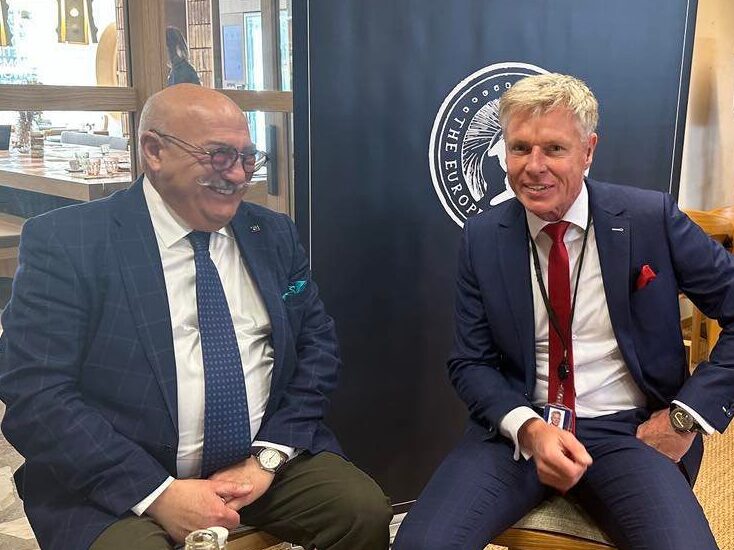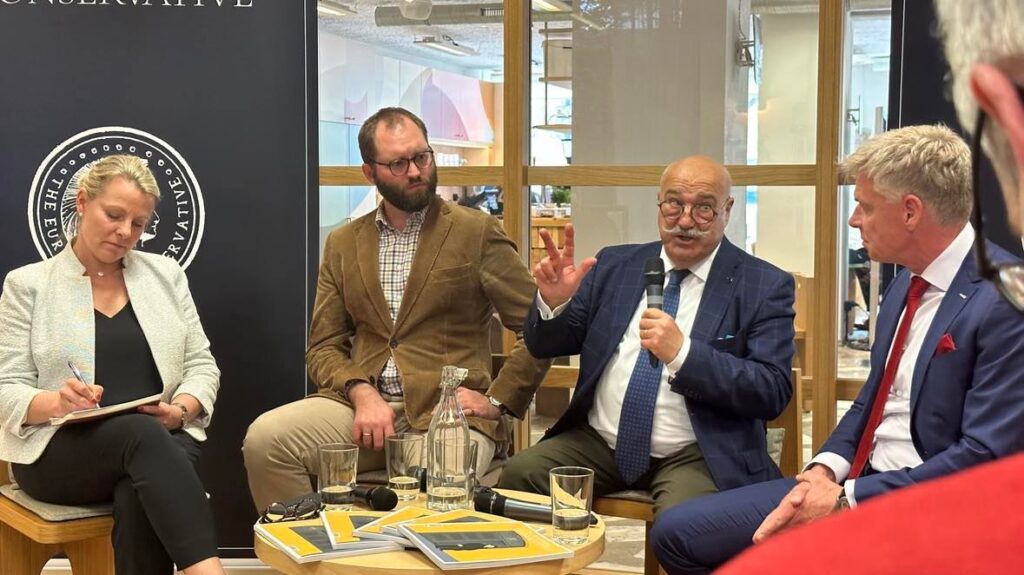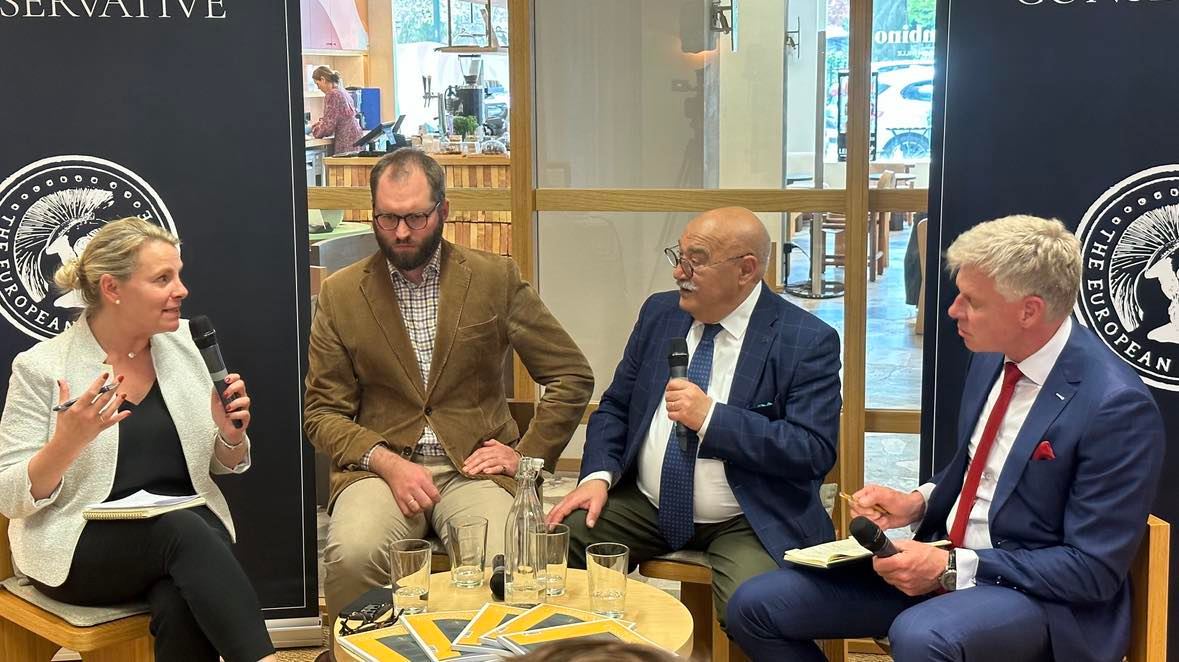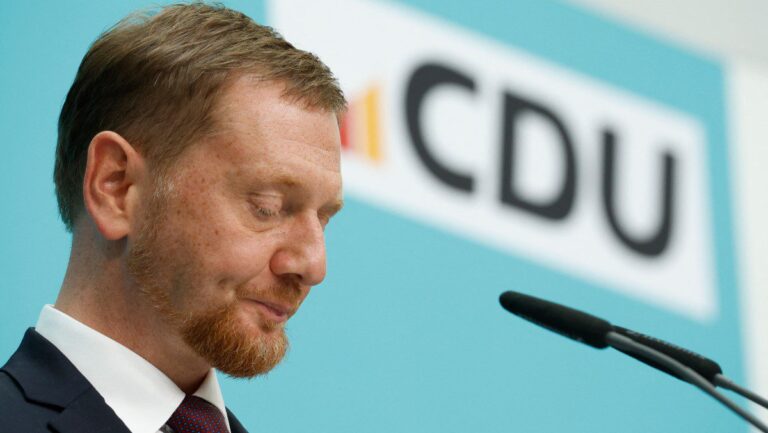If you missed it live, watch the full footage of our event and enjoy the spirited discussion.
A Path Forward
Just how will the EU’s Green Deal impact civilian’s lives? This was the main question that framed the panel event hosted by The European Conservative on Wednesday, April 26th.
The assault on farmers; the shifting rhetoric by green lobbyists; the engineered ‘climate emergency’ were among the topics discussed by Dutch MEP Rob Roos, former Commission official and energy expert Professor Samuele Furfari, and philosopher Sebastian Morello.
Our second #apathforward event has just begun.
— The European Conservative (@EuroConOfficial) April 26, 2023
Thank you for joining us today for this interesting panel discussion on the #GreenDeal. @Rob_Roos @FantinaVienna pic.twitter.com/I1i0i9nCIj
The panellists engaged the new EU climate diktats with clarity and prescience, discussing the new cycles of dependencies to be imposed upon the European economy and taxpayer, made all the more messier as the bloc looks increasingly split over issues such as nuclear power, the ban on new manufacturing of petrol cars, and de-leveraging green tech supply chains from China.
Watermelon Politics?
Dutch MEP Rob Roos, a telecoms entrepreneur and ardent critic of the EU’s decarbonisation policies, chastised Brussels for a type of “watermelon politics” [Greens who prioritise Marxist ‘social justice’ over ecological concerns] and advancing socialist policies under the guise of environmentalism. He referenced the sly role of climate NGOs in shaping policy, particularly drawing attention to their hypocrisy, evident in surreptitious attempts by the Commission to ignore nuclear energy all the while backing environmentally unfriendly energy sources such as biomass.

Roos linked control of carbon emissions to social engineering, and used the success of his own country to illustrate. The Netherlands had genuine problems around nitrogen emissions, but they had been resolved, and without the imposition of new laws. It is due to this obvious, and reasonless, overreach by government that the BBB Farmers’ party has seen such rapid-fire electoral growth.
Brussels’ De-growth Agenda
The EU has no future without growth, warned former Commission official Professor Furfari, adding that the bloc’s reckless embrace of the green agenda risks wasting the economic gains of the post-war European project as a whole. Professor Furfari slammed the failure of energy subsidies to make the renewable energy sector viable. He denounced the pressure to enforce the EU’s Green Deal on Africa as a type of neocolonialism, mentioning Germany’s ongoing attempts to foist inefficient hydrogen production onto Namibia.


To Professor Furfari, the Green Deal represents an attempt to bypass member state control of their energy supply, ironically, in contravention of the Lisbon Treaty. Article 194(2), he explained, specifically acknowledges member states’ freedom to choose the type of energy they use and the conditions under which they obtain their energy—an article frequently ignored, but one that safeguards the right of each country to set its own energy policy.
The Retreat of Conservationism
Breaking from policy-orientated discussion, Sebastian Morello offered a passionate yet philosophical defence of the role of hunters in maintaining the balance of nature in contrast to what he sees as an almost anti-human attempt to ‘rewild’ the planet. An idea increasingly popular in the aftermath of the pandemic, rewilding is a controversial method of turning tracts of countryside back to nature often involving a generous system of subsidies.


The West, to Morello, is facing a “retreat from the language of conservationism” with climate fanatics conscious of cleaving any elements of organicism away from the debate. Elites are repeating the cardinal error of decoupling man from nature in the hope of pursuing a new Eden, according to Morello, assisted by the post-pandemic power grabs and mania generated by so-called climate emergencies.
An Erosion of Democracy
The mercurial language of the green lobby dominated a subsequent Q&A with Rob Roos suggesting that conservatives and populists had a lot to learn from the Left in framing the debate. Saying that the Green Deal was largely unasked for by the Dutch electorate, the new diktats from Brussels represented a clear “erosion of democracy” by the Commission.
With over 30 years working in EU circles, Professor Furfari noted that the language of ‘development’ in official documents had gradually altered to that of ‘sustainability’ to placate a new agenda since the 1990s. Sebastian Morello stated that slightly more protectionist and seasonal diets in line with the rhythm of nature could be an alternative to industrial farming.
The human impact of the Green Deal was highlighted by Rob Roos with a description of a spike in suicides reported among Dutch farmers caused by the new edicts.
Chaired by managing editor of The European Conservative Ellen Kryger Fantini, the event is further evidence of the refreshing voice embodied by a publication that has set out to change the rhythm of discourse in Brussels, a city and political project increasingly monolithic—yet fanatical—in its worldview.





